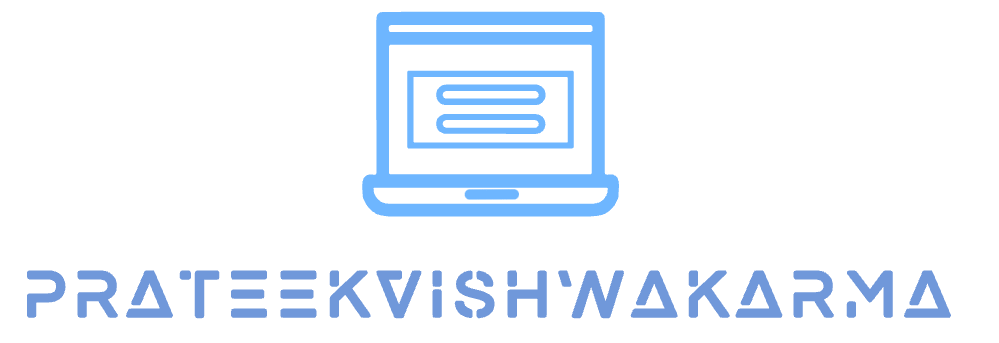AI Ethics in 2025: A Practical Playbook for Responsible AI Development
As we navigate further into 2025, Artificial Intelligence continues its relentless march, permeating every sector from healthcare to finance, and fundamentally reshaping how we live and work. With this unprecedented integration comes a profound ethical imperative: to ensure AI systems are not just intelligent, but also fair, transparent, and accountable. The conversation around AI ethics has matured beyond abstract principles, demanding a practical playbook for developers and organizations committed to building responsible AI from the ground up.
This article synthesizes insights from leading technical ethicists and AI practitioners, offering hands-on strategies to tackle emerging, non-regulatory ethical challenges. We’ll explore specific frameworks and tools, delve into real-world case studies, and predict the evolution of the ethical AI profession itself, providing a comprehensive guide for those on the front lines of AI development.

The Evolving Landscape: Beyond Compliance and Towards Proactive Ethics
In 2025, responsible AI development is no longer merely about regulatory compliance, though frameworks like the EU AI Act continue to set important benchmarks. The focus has shifted towards embedding ethical principles deep within the organizational culture and the entire AI lifecycle.
Emerging Non-Regulatory Ethical Challenges
Leading experts highlight several critical ethical challenges that extend beyond legal mandates, requiring proactive solutions:
- Bias & Fairness: Despite growing awareness, AI systems still grapple with perpetuating and amplifying societal inequalities due to historical, representation, and algorithmic biases embedded in training data. This can lead to discriminatory outcomes in areas like loan approvals, hiring, and even medical diagnoses.
- Transparency & Explainability (XAI): The “black box” problem—where AI decisions are opaque and difficult to interpret—remains a significant hurdle. Understanding how an AI system arrives at a conclusion is crucial for trust, accountability, and debugging, especially in sensitive applications.
- Privacy & Data Sovereignty: As AI systems devour vast quantities of data, ensuring robust privacy protection, informed consent, and secure data handling becomes paramount. The ethical use of personal data is a foundational pillar of responsible AI.
- Accountability & Human Oversight: In complex AI systems, especially autonomous ones, pinpointing responsibility when things go wrong can be challenging. “Automation bias,” where humans over-rely on AI outputs, can diffuse accountability. Maintaining meaningful human control and oversight is essential.
- Societal Impact: Beyond direct user interaction, AI raises broader concerns, including potential job displacement, exacerbating digital divides, and even environmental impact due to energy consumption for large models. Generative AI, in particular, introduces new challenges around information integrity and the creation of convincing fake content.
A Developer’s Toolkit: Practical Frameworks and Tools for Ethical AI
The good news is that a growing ecosystem of frameworks, methodologies, and tools is empowering developers to embed ethical considerations directly into their day-to-day work.
Embedding Ethics by Design: Methodologies & Principles
A core shift in AI ethics 2025 is the emphasis on Ethics by Design, integrating ethical thinking from problem framing to deployment and feedback. This proactive approach ensures ethical considerations are not an afterthought but an integral part of the development lifecycle. Key principles guiding this approach include:
- Fairness & Non-Discrimination: Designing AI to treat all individuals and groups equitably.
- Transparency & Explainability: Making AI decision-making processes understandable.
- Privacy & Data Protection: Safeguarding personal data and ensuring responsible usage.
- Accountability & Responsibility: Establishing clear responsibility for AI system outcomes.
- Human Agency & Oversight: Maintaining human control and meaningful intervention capacity.
- Reliability & Safety: Ensuring AI systems are robust, secure, and operate as intended without causing harm.
Hands-On Tools for Ethical Implementation
Developers now have access to a suite of open-source and commercial tools to put these principles into practice:
- Bias Detection & Mitigation:
- IBM AI Fairness 360 (AIF360): A comprehensive open-source toolkit offering algorithms for bias detection, explanation, and mitigation.
- Microsoft Fairlearn: Provides tools for assessing and improving fairness in AI systems, focusing on mitigating unfairness in classification and regression models.
- Amazon SageMaker Clarify: Detects bias in machine learning models and explains predictions to help achieve fairer outcomes.
- Google’s What-If Tool (WIT): Allows interactive analysis of ML models to explore behavior, understand predictions, and identify fairness issues across data subsets without coding.
- Explainable AI (XAI) Tools:
- LIME (Local Interpretable Model-agnostic Explanations) & SHAP (SHapley Additive exPlanations): Open-source libraries that help interpret individual predictions of any machine learning classifier, providing local explanations.
- Model Cards & Data Sheets: Standardized documentation formats for AI models and datasets, detailing characteristics, intended uses, limitations, and ethical considerations.
- IBM AI Explainability 360: Helps explain how models make predictions and identifies biases.
- Privacy-Preserving Technologies:
- TensorFlow Privacy: A library for training machine learning models with privacy guarantees, such as differential privacy, to protect user data.
- Ethical Risk Assessment & Governance Tools:
- Ethical OS Toolkit: Helps identify potential risks and social harm early in the development process.
- Deon by DrivenData: A command-line tool that adds an ethics checklist to data science projects, fostering accountability and transparency.
- Algorithmic Impact Assessment (AIA) Tools: Used to evaluate the potential consequences of AI systems on individuals and society, identifying risks, biases, and unintended effects.
Real-World Ethical AI: Case Studies and Lessons Learned
Moving from principles to practice requires learning from real-world implementations. Here are insights from various sectors:

Mitigating Bias in Financial Services
A prominent case involves a leading bank that deployed an ML model for automated loan approvals. Initial audits revealed the system disproportionately rejected applicants from historically underserved ZIP codes. The lesson learned was stark: bias in training data can silently propagate into AI systems. The organization responded by integrating fairness-aware algorithms, implementing robust data governance, and adding explainability tools for continuous monitoring to detect and rectify such disparities. This highlights the importance of scrutinizing legacy data for inherent biases and applying fairness metrics across different demographic groups.
Ensuring Fairness in Healthcare Diagnostics
In healthcare, AI diagnostic tools have faced challenges where misdiagnosis occurred due to data gaps or underrepresentation of certain patient populations in training data. A lack of interdisciplinary collaboration, where ethics is seen as a static guideline rather than an ongoing process, often exacerbates these issues. Organizations are now focusing on diverse datasets, regular bias audits throughout the entire development lifecycle (not just early stages), and fostering collaboration among developers, clinicians, and ethicists to ensure equitable care.
Building Trust in AI for Social Good
Beyond commercial applications, AI is being deployed for international development with a strong ethical lens. Projects like askNivi, a chatbot for health information, and RobotsMali, which uses AI to create local language school books, demonstrate responsible AI in action. These initiatives emphasize practices such as “do no harm (go slowly), keep humans in the loop, pursue fairness for all, and share with the community of practice.” They underscore the need for direct connections to users and communities to measure impact and ensure AI systems reflect diverse values.
Key Takeaways from Successful Implementations
Organizations successfully navigating ethical AI integration often share common strategies:
- Human-in-the-Loop: Always designing systems where human judgment can override or intervene, especially in critical decisions.
- Diverse Development Teams: Involving diverse perspectives (technical, legal, ethical, domain experts, affected communities) from the outset to identify and mitigate biases.
- Continuous Monitoring & Auditing: Ethical AI is an ongoing commitment, requiring regular audits and real-time monitoring to detect model drift and emerging biases post-deployment.
- Feedback Loops: Establishing robust mechanisms for user and stakeholder feedback to inform iterative improvements and address concerns.
- Transparency & Communication: Clearly disclosing AI use and providing understandable explanations for decisions to foster trust.
The Future of Responsible AI: New Roles and Essential Skills
The growing emphasis on ethical AI is transforming the professional landscape, creating new roles and demanding evolving skill sets.
The Rise of the AI Ethicist and Beyond
The role of the AI Ethicist is becoming increasingly prominent, acting as an impartial observer, a guide for ethical decision-making, and an agent of change within organizations. However, the shift extends beyond this single role:
- New Specialized Roles: We are seeing the emergence of dedicated positions such as AI Security Specialists, focused on safeguarding AI systems from misuse and cyber threats, and Data Governance Specialists, ensuring compliance with data protection and privacy guidelines.
- Expanding Responsibilities: Existing roles like Machine Learning Engineers and Data Scientists are expanding to include crucial skills in cybersecurity, ethical AI development, bias detection, and explainability techniques. Developers are now expected to conduct risk assessments, ensure data quality, and implement human oversight mechanisms.
The future AI professional will blend technical acumen with a deep understanding of societal impact, legal frameworks, and human values.
Cultivating an Ethical AI Culture
Beyond individual roles, organizations are recognizing the need to cultivate an ethical AI culture:
- Interdisciplinary Collaboration: Effective AI governance requires close collaboration among legal experts, technologists, ethicists, HR, and business teams. Cross-functional governance committees are becoming standard.
- Continuous Education & Training: Mandatory ethics and compliance training for AI-involved personnel, alongside broader digital literacy and AI ethics training for all employees, is crucial for fostering awareness and competence.
- Independent Audits & Certifications: The push for independent audits and certifications for ethical AI, coupled with international cooperation on standards, will provide external validation and build public trust.
- Values-Based Policies: Companies must start with strong, values-based AI policies that translate into concrete actions and responsibilities across the AI lifecycle.
Conclusion: Charting a Responsible Course for AI’s Future
AI ethics in 2025 is a dynamic, evolving field demanding proactive engagement from every stakeholder, especially developers. The transition from abstract principles to practical, implementable strategies is vital for building AI systems that are not only innovative but also trustworthy, fair, and beneficial to all of humanity. By embracing “Ethics by Design,” leveraging powerful tools for bias mitigation and explainability, learning from real-world successes and challenges, and fostering a culture of continuous ethical inquiry and collaboration, developers can confidently navigate the complexities of AI development. The future of AI is in our hands; let’s build it responsibly, ethically, and for the common good.
FAQ Section
Q1: What are the primary non-regulatory ethical challenges in AI development in 2025?
The primary non-regulatory challenges include mitigating systemic biases, ensuring transparency and explainability in “black box” models, protecting user privacy and data sovereignty, establishing clear accountability and human oversight, and addressing broader societal impacts like job displacement and information integrity.
Q2: What practical tools can AI developers use to implement ethical principles?
Developers can leverage tools like IBM AI Fairness 360 and Microsoft Fairlearn for bias detection and mitigation, LIME and SHAP for explainable AI (XAI), TensorFlow Privacy for data protection, and the Ethical OS Toolkit or Deon for ethical risk assessments and governance checklists.
Q3: How is the ethical AI profession evolving, and what skills are needed?
The profession is seeing the rise of dedicated AI Ethicists, AI Security Specialists, and Data Governance Specialists. Existing roles like ML Engineers and Data Scientists require expanded skills in cybersecurity, ethical development, bias mitigation, and explainability. Essential skills include interdisciplinary collaboration, critical ethical reasoning, and continuous learning.
Q4: Why is “Ethics by Design” crucial for responsible AI in 2025?
“Ethics by Design” is crucial because it embeds ethical considerations from the very beginning of the AI development lifecycle, rather than addressing them as an afterthought. This proactive approach helps prevent biases, ensure transparency, and build accountability into AI systems from their conception, making them inherently more trustworthy and robust.
Q5: What role do case studies play in advancing AI ethics?
Case studies are vital as they translate high-level ethical principles into real-world operational decisions. They help illustrate common pitfalls, demonstrate effective solutions for bias mitigation and transparency, and highlight the tangible impact of AI on users. Learning from successful (and challenging) implementations provides practical lessons beyond theoretical guidelines.
Tags: AI Ethics, Responsible AI, AI Development, Tech Trends.
















Add a Comment